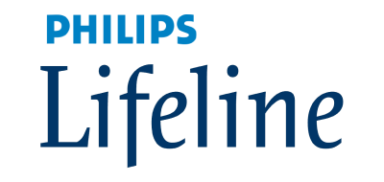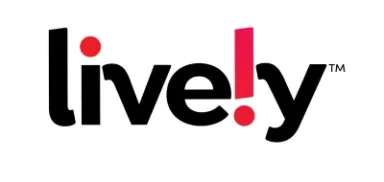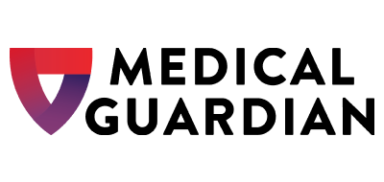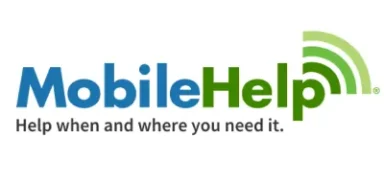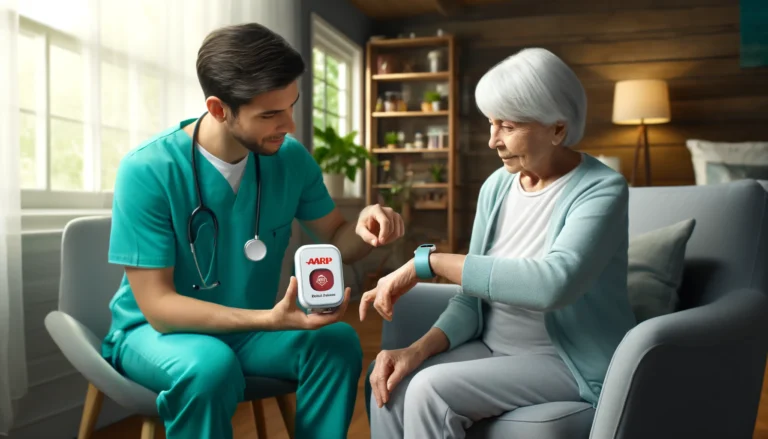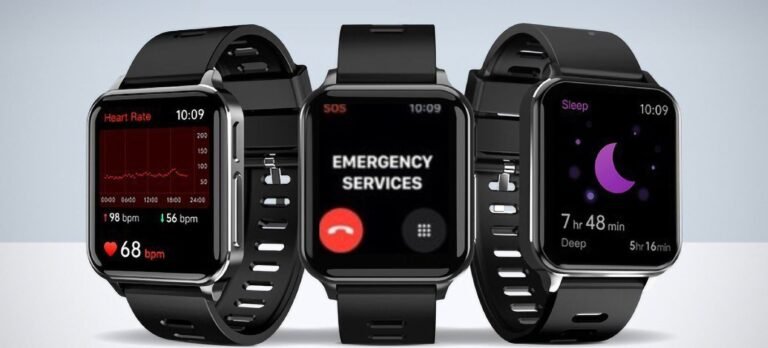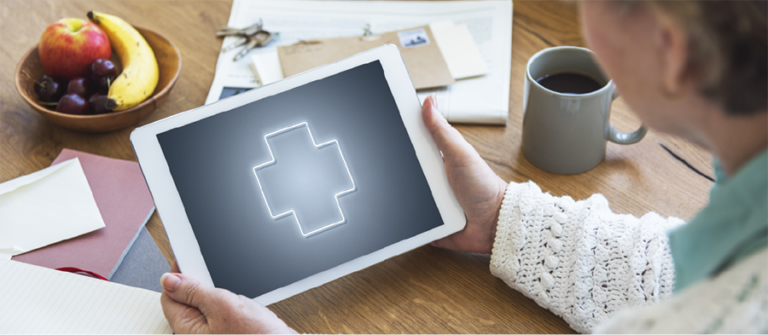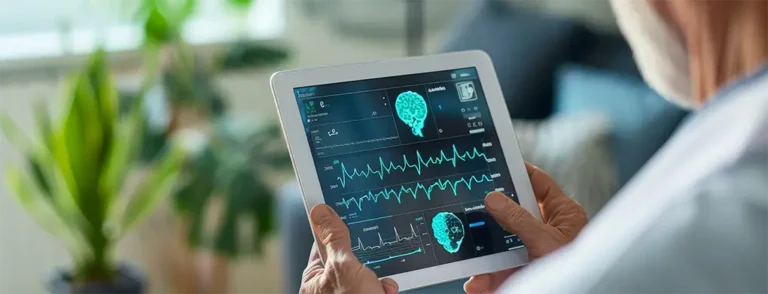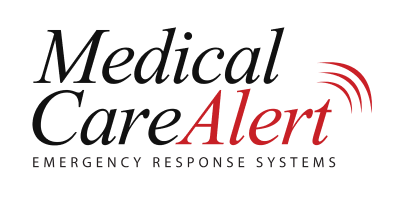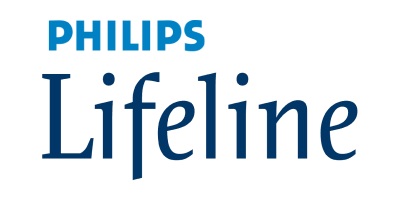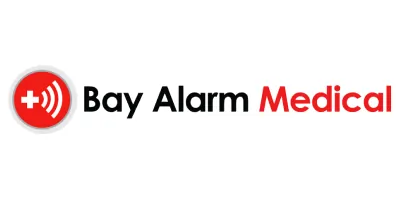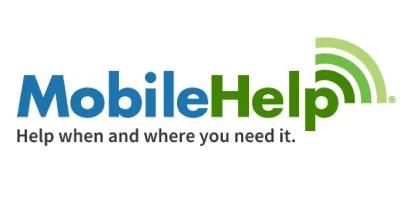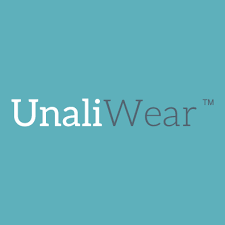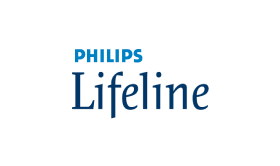About Brands
Technology is pivotal in providing peace of mind and independence in personal safety and health monitoring, particularly for seniors and individuals with health concerns. Two notable products in this field are Philips Lifeline medical alert systems and the Apple Watch. Each offers distinct features to enhance user safety but caters to slightly different needs and preferences.
Philips Lifeline is a leader in medical alert services, specifically designed to support seniors living independently. Their systems, such as HomeSafe and On the Go, offer robust features, including fall detection, GPS tracking, and direct communication with trained care specialists. These devices are tailored to respond effectively in emergencies, ensuring that help is available 24/7 at the touch of a button.
On the other hand, the Apple Watch has emerged as a versatile smartwatch that includes health and safety features such as heart rate monitoring, fall detection, and Emergency SOS. While not exclusively a medical alert device, the Apple Watch offers a range of applications that contribute to overall wellness and emergency preparedness. Its integration with mobile technology also allows for comprehensive health tracking and connectivity, making it a popular choice for a tech-savvy demographic that values functionality and style.
Lifeline
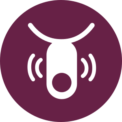
Lifeline’s commitment to user safety and independence is evident through features like automatic fall detection, GPS support, and direct communication lines to trained responders.
- Automatic Fall Detection
- GPS-enabled Medical Alert
- Caregiver Mobile App
- Ease of Installation
- Comprehensive Support
- 30-day Full-Refund Guarantee
We selected Philips Lifeline for review due to its pioneering role in medical alert systems, combining innovative technology with user-focused services. Lifeline’s reputation for reliability, sophisticated fall detection, and GPS-enabled devices address a broad spectrum of needs, from seniors living alone to active individuals. Their systems are designed for ease of use and rapid response, ensuring that help is always at hand. By focusing on both the technological and human aspects of medical alerts, Lifeline exemplifies a commitment to enhancing the quality of life for its users, making it a standout choice for our in-depth review.
Apple Watch Series 9
The Apple Watch Series 9 continues Apple’s tradition of innovative technology and health-oriented features. As a leading name in the smartwatch market, Apple has designed the Series 9 to be not just an extension of your smartphone but a comprehensive health and fitness companion. It integrates seamlessly with the iOS ecosystem, offering a wide array of features that cater to both daily convenience and emergency situations.
- Advanced Health Monitoring
- Superior Fall Detection
- Emergency SOS
- Fitness Tracking
- Always-On Retina Display
- Water Resistance
The Apple Watch Series 9 stands out as the best medical alert watch of 2024 for several compelling reasons. Its advanced health monitoring capabilities, including the lifesaving potential of its fall detection and Emergency SOS features, set it apart in a market flooded with options. The integration of these features into a device that also excels in daily connectivity, fitness tracking, and personalization offers users a level of versatility and reliability unmatched by competitors. While the price point and battery life may be considerations for some, the overall value and peace of mind provided by the Apple Watch Series 9 make it an unrivaled choice for anyone looking to combine the functionalities of a smartwatch with the critical features of a medical alert system.
This comparison aims to explore how both Philips Lifeline and Apple Watch stand up as medical alert options, highlighting their strengths and how they meet the needs of different user groups. By examining the specific features designed for emergency response and daily health monitoring, this analysis will help clarify which device might be more suitable depending on individual requirements and lifestyles.
General Information
The comparison between Philips Lifeline and the Apple Watch in the context of medical alert capabilities highlights critical differences and similarities across several essential factors:
- Overall Rating: Both products receive high marks overall. Philips Lifeline is noted for its dedicated emergency response features, while the Apple Watch is praised for its comprehensive health and technology integration.
- Startup Costs: Philips Lifeline may involve some initial fees and ongoing monthly costs related to its emergency services. In contrast, the Apple Watch requires a higher upfront purchase price but doesn’t typically include recurring fees for basic emergency features unless linked to a cellular service.
- User Reviews: Philips Lifeline is generally well-regarded for its effective emergency response and customer service. While used more broadly for its intelligent features, the Apple Watch is also appreciated for its emergency response functionalities like
- Most Popular Products: Popular offerings from Philips Lifeline include their HomeSafe and On the Go systems, specifically designed for elderly users needing reliable emergency alert systems. The Apple Watch’s latest models are favored for their advanced health monitoring tools alongside safety features.
- Reliability: Reliability is a cornerstone of Philips Lifeline, which is crucial for a device meant for emergency alerts. The Apple Watch also offers reliable technology but requires regular charging, which may affect its use in continuous emergency monitoring.
- Ease of Setup and Use: Both devices are designed to be user-friendly. Philips Lifeline provides straightforward setup processes tailored for non-tech-savvy users. In contrast, the Apple Watch involves a more complex setup that integrates with an iPhone, appealing more to those familiar with the technology.
- Best for: Philips Lifeline is best suited for seniors and those with medical needs who require dependable emergency communication. The Apple Watch suits a broader audience, including tech-savvy individuals who appreciate its multipurpose functionality that extends beyond emergency services.
Technical Characteristics
In comparing Philips Lifeline and the Apple Watch, the focus on their distinct functionalities highlights their suitability for different user needs in terms of medical alert capabilities:
- Battery and Charging: Philips Lifeline devices are designed for longevity with less frequent charging requirements, making them more reliable for continuous monitoring. Conversely, the Apple Watch requires daily charging, which may not be the top choice for users who need constant monitoring without interruptions.
- Connectivity and Range: Both offer robust connectivity options; however, Philips Lifeline provides both landline and cellular options, ensuring reliable service in varied environments. The Apple Watch depends on cellular or a connection to an iPhone, offering extensive coverage but requiring more technological interaction.
- Design and Wearability: Philips Lifeline’s devices focus on functionality and ease of use, with designs prioritizing comfort for all-day wear. The Apple Watch, known for its stylish and modern design, serves as a smartwatch and a health monitor, appealing to a broader demographic beyond those needing medical alerts.
- App Integration and Customization: The Apple Watch stands out with its extensive app integration, allowing for a highly personalized experience. Philips Lifeline offers specialized functionalities geared specifically toward emergency responsiveness and health monitoring, with less emphasis on broader lifestyle integration.
- Water Resistance: Both devices provide water resistance, ensuring durability in showers or pools. This feature is crucial for users prone to slips or falls in such areas, with both brands offering solid protection.
The primary distinctions lie in their target audiences and core functionalities: Philips Lifeline is tailored for users who prioritize straightforward, reliable medical alert systems, while the Apple Watch is suited for those who value a multifunctional device that includes fitness and lifestyle features alongside emergency capabilities.
Monitoring and Response
The monitoring and response capabilities of Philips Lifeline and the Apple Watch showcase their distinct approaches to emergency management and user safety, reflecting their respective core audiences.
Philips Lifeline emphasizes robust, dedicated emergency response features. It offers 24/7 monitoring services through certified centers, ensuring high standards of quality and reliability. Their systems are equipped with two-way voice communication, allowing direct and immediate contact with trained care specialists ready to dispatch the necessary help based on the user’s pre-determined emergency plans. This setup is particularly advantageous for users requiring immediate assistance due to health issues. Philips Lifeline also incorporates GPS tracking in their devices, enhancing the ability to pinpoint a user’s location during an emergency, which is critical for timely response.
While incorporating similar features, Apple Watch leans more towards broader technology integration. It also offers GPS tracking and has added health monitoring features that integrate seamlessly with its mobile apps, providing a more connected experience. The Apple Watch includes a two-way communication ability through its iPhone integration, allowing users to make calls and send messages directly from their wrist. However, unlike Philips Lifeline, the monitoring aspect is not as focused on emergency response but on overall health tracking and lifestyle management. The response features, such as the Emergency SOS, allow users to contact emergency services directly but do not connect them to a dedicated monitoring center.
The critical difference lies in monitoring and response execution: Philips Lifeline is explicitly designed for medical emergencies with a system that ensures quick, professional health emergency handling.
In contrast, the Apple Watch provides a more DIY approach where the user is in control of initiating emergency protocols, which may appeal to those who are generally more independent and tech-savvy. This makes Philips Lifeline ideal for those who require constant, specialized monitoring. At the same time, the Apple Watch suits active individuals who appreciate a blend of lifestyle features with the added security of emergency tools.
Latest Guides
Additional Features
The additional features of Philips Lifeline and the Apple Watch enhance their core functionalities, tailoring them to meet the specific needs of their users and focusing on safety and convenience.
Philips Lifeline has practical features that enhance its utility as a medical alert system. Including lockboxes is a standout feature, allowing emergency responders to access a user’s home without needing to force entry, thus facilitating quicker and safer responses. Multi-user support is not a primary focus of Philips Lifeline, which typically tailors its devices and services to individual users. However, it does offer medication reminders and multilingual support, ensuring that users can receive reminders in their preferred language, enhancing the device’s usability across diverse populations.
On the other hand, the Apple Watch incorporates a broader range of modern tech features that align with its design as a smartwatch. While it doesn’t offer lockboxes, it excels in features like voice activation, which allows users to operate the device hands-free, using Siri to make calls, send texts, or set reminders, including medication alerts. The Apple Watch also supports multiple users because it can manage different profiles and data across various Apple devices. However, each watch is typically tied to a user’s health data. Its multilingual capabilities are integrated seamlessly, offering support across a wide range of languages due to its global user base.
In summary, Philips Lifeline focuses on features that enhance emergency responsiveness and ease of use for seniors or those with significant health concerns. It is highly specialized for medical alert purposes. The Apple Watch, leveraging its versatile smartwatch platform, offers a suite of features that cater to a tech-savvy, health-conscious audience, making it ideal for users who value connectivity and multifunctionality alongside health and safety features.
Customer Service and Support
The level of customer support provided by Philips Lifeline and the Apple Watch reflects their differing approaches to product service and user assistance, with each brand tailoring its support services to meet the specific needs of its customers.
Philips Lifeline offers a customer support system that is highly specialized to assist with medical alert services. Their support teams are trained to handle emergencies and provide technical support for medical alert devices. This includes comprehensive maintenance services for their devices, ensuring they function optimally when needed. Philips Lifeline also has a straightforward policy on returns and refunds, offering peace of mind to users who might be uncertain about their purchase. Additionally, their products typically come with a warranty that covers device malfunctions, further securing the investment of their users.
Apple Watch, a product of Apple Inc., benefits from a major tech company’s extensive customer service infrastructure. Apple’s customer service is highly rated, with numerous support options, including in-store assistance, online chat, and telephone support. Maintenance for the Apple Watch can be handled through Apple’s regular device support channels, which are well-equipped to deal with a wide range of technical issues. Returns and refunds are handled under Apple’s standard return policy, which is generally user-friendly and accommodating. The warranty for the Apple Watch is robust, covering defects and offering extended protection plans for additional purchases.
In essence, while both Philips Lifeline and Apple offer strong customer support, Philips Lifeline’s services are specifically tailored to the emergency alert market, focusing on readiness and reliability. With its broader technological focus, Apple provides versatile and accessible support that benefits from the company’s extensive retail and support network. This makes Philips Lifeline ideal for those prioritizing dedicated support in medical emergencies. In contrast, the Apple Watch is suited for users looking for a versatile device with overall solid customer and technical support.
Cost and Value
Evaluating the cost and value of Philips Lifeline and the Apple Watch involves considering their pricing structures, additional service fees, and the overall value they offer through their subscription plans and product features.
Philips Lifeline primarily operates on a subscription basis, which includes a range of plans tailored to different needs and budgets. These plans generally involve an initial setup fee, which can consist of the cost of the device and installation. The monthly payments vary depending on the level of service chosen, such as in-home only or with GPS capabilities. Philips Lifeline may charge extra for additional services like fall detection. However, they often provide discounts and special offers, especially for new subscribers or long-term commitments, which can enhance the overall value. Notably, Philips Lifeline offers a trial period for new users, allowing them to test the service and ensure it meets their needs before fully committing.
On the other hand, Apple Watch requires an upfront purchase price for the device, which is significantly higher than any initial fee for Philips Lifeline. There is no traditional monthly fee associated with the basic emergency features of the Apple Watch, though cellular models require a wireless plan, which comes at an additional cost. Apple also frequently offers promotions, particularly during product launches or special events, which can provide added value to customers. The Apple Watch does not typically offer a specific trial period for the device itself. Still, Apple’s return policies allow customers to return the product within a set period if unsatisfied.
Overall, Philips Lifeline offers a cost structure that is straightforward and predictable, ideal for those who prefer a dedicated service with transparent pricing tailored to emergency response. The Apple Watch provides a high initial cost. Still, it delivers extensive value through its multifunctionality and integration into the broader Apple ecosystem, appealing to those seeking a device that seamlessly blends lifestyle, health, and emergency features. Each brand presents a different type of value proposition, making the choice dependent on the user’s specific needs and how they value technology integration into their health and safety routines.
Read More
Conclusion: User Perspectives on Philips Lifeline vs. Apple Watch
In the comparison between Philips Lifeline and the Apple Watch, both products demonstrate strengths in their respective fields of emergency response and health technology integration. Philips Lifeline, recognized for its dedication to medical alert services, comes highly recommended by AARP as one of the top choices for medical alert systems. This endorsement underscores its reliability and suitability for elderly users who require robust emergency support systems.
In user reviews, Philips Lifeline is often praised for its reliability and the peace of mind it offers. Many appreciate the dedicated focus on emergency responsiveness. Users highlight the system’s effectiveness in emergencies, where the trained response teams rapidly assess and react to incidents, ensuring that help is promptly dispatched. The simplicity and ease of use are frequently mentioned as significant benefits, making it especially suitable for elderly users who are uncomfortable with complex technology.
While not primarily a medical alert system, the Apple Watch receives commendation for its multifunctionality. Users appreciate the integration of health monitoring features, such as heart rate tracking and fall detection, which provide additional safety layers while offering everyday smartwatch functions. However, some reviews indicate concerns about battery life and the need for frequent charging, which could be a limitation in continuous monitoring scenarios.
Ultimately, the choice between the Philips Lifeline and the Apple Watch may hinge on the specific needs and lifestyles of the users. Philips Lifeline stands out for those seeking a straightforward, reliable medical alert system with professional monitoring services.
In contrast, the Apple Watch is ideal for those who prefer a device that combines health monitoring with the broader functionalities of a smartwatch.
For those considering either option, exploring user reviews on forums and discussion groups can provide deeper insights into how these devices perform in real-life situations, helping to make a more informed decision based on personal needs and preferences.


